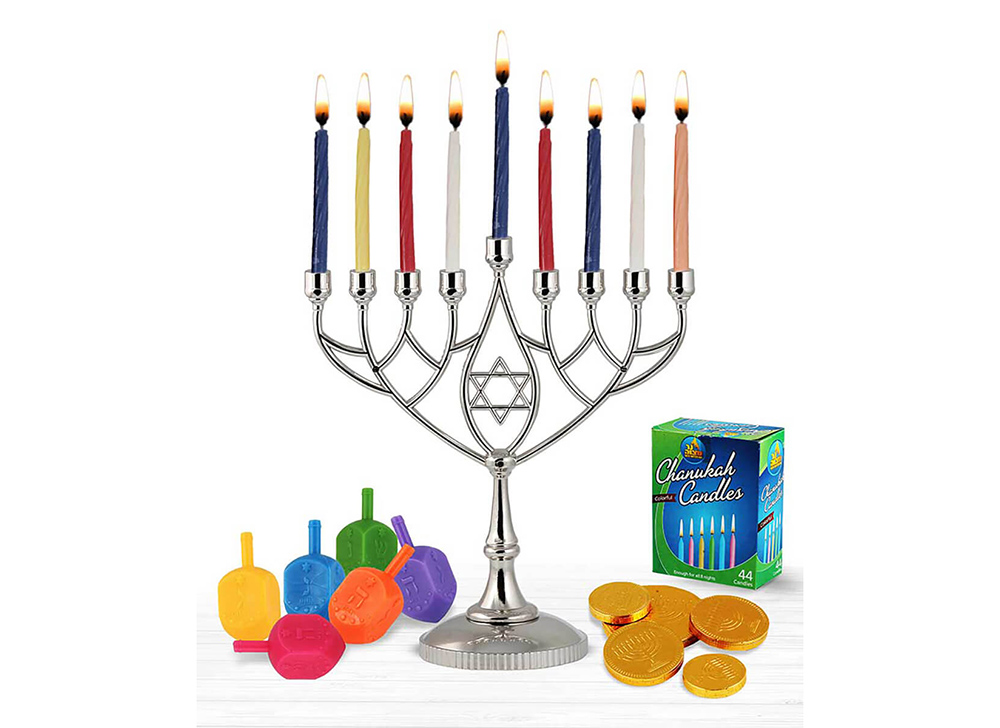By: Rabbi Benjamin Blech
Why the miracle of the Hanukkah oil is so important to Jews
We all know that when the Jews rededicated the temple there was only enough oil to last for one day and miraculously it lasted for eight. But what makes that worthy of a holiday?
The real reason for the Hanukkah holiday isn’t that we saved a week’s worth of oil but that God reminded us once again of the very first message he shared with Moses at the burning bush.
Moses was tending his sheep and suddenly saw a bush on fire. Strangely enough, it defied the laws of nature and was not being consumed. God sent a message to reassure Moses at that moment and to also serve as prophecy for the Jewish people to the end of days. Just like that bush was not consumed, the Jews too will defy the laws of history and will never perish.
When Arnold Toynbee completed his classic 10-volume analysis of the rise and fall of human civilizations, The Study of History, he was troubled by one seeming refutation of his universal rules governing the inexorable decline of every people on earth. Only the Jews survived in defiance of Toynbee’s carefully reasoned analysis. So Toynbee proclaimed the Jews nothing more than “a vestigial remnant,” a people destined to shortly expire. But somehow in spite of all those brutal attempts to destroy the children of Israel, Jews have demonstrated the ongoing miracle of the burning bush.
Jewish history defies explanation. Jewish survival is nothing short of a miracle. And it is a miracle which God assured Moses will repeat itself until the end of days.
That is why at a time when world leaders at the United Nations continue to pass their obscene resolutions against Israel and anti-Semitism once again sprouts its ugly head among supposedly civilized nations, we rejoice at the Hanukkah lights which reassure us of our eternal survival.
Why Jews shouldn’t turn Hanukkah into a Jewish Christmas
It’s true that Hanukkah and Christmas are usually celebrated around the same time. As a matter of fact, the day of the month is identical – Christmas is the 25th of December and Hanukkah is the 25th of the Hebrew month of Kislev. Many Jews who live in Christian countries have made Hanukkah the most observed Jewish holiday because we don’t want our poor kids to feel deprived while everybody else is getting presents. And, just like Christmas, Hanukkah also has suffered by becoming over commercialized.
But we should never forget that Hanukkah historically came before Christmas by almost two centuries. The Hanukkah story begins with the confrontation between the culture of the Greeks and the spiritual identity of the Jews. Hellenism worshiped the holiness of beauty; Judaism worshiped the beauty of holiness. The Greeks were masters of art; they idolized the body; they excelled in sports; their gymnasiums served as models for the Olympic Games. Hellenism glorified the physical.
The Jews had a mission: to maintain the primacy of the spiritual.
In the second century before the common era, the battle raged in Israel for the hearts and souls of the Jews. And the sad truth is that many Jews succumbed to the seductive lure of the Greek lifestyle. They followed the philosophy of the Epicureans who taught that pleasure is the chief goal of life: “Eat, drink, and be merry, for tomorrow you may die.” These Jews called themselves Hellenists. Traditional Jews referred to them as Apikorus, a variant of the word for Epicurean, still used to this very day to label someone a heretic.
Ironically, the whole point of the Jewish victory was defeating the threat of assimilation, overcoming the powerful lure of the religious practices of their pagan neighbors. Hanukkah became the holiday beautifully symbolized by the uniqueness of oil. All other liquids easily blend with different liquids. Oil is unique. Try to mix it with water and it separates and rises to the top.
Jews and Christians need to respect each other – but not to imitate each other. And for Jews to observe Hanukkah and Christmas together is to negate the very message of the holiday’s spiritual meaning.
(Aish.com)




